Our Hideaway
What I Learned from Being Vulnerable
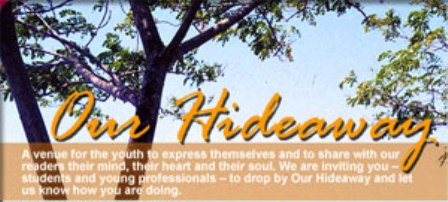
Caught in the 7.9 earthquake in Nepal
By Red Dawn Laurente
‘Is it meant to be?’ I asked myself hoping I could get an answer as to why I ended up in a situation where I felt so helpless, weak, isolated and incapable.
What I found was a very profound answer.
April 25 this year started as an ordinary morning. I was sitting in front of my computer in a laid-back way, passing the time, when suddenly the earth shook in a manner I had never experienced before. I heard a deafening sound followed by screams of people nearby. I knew that something big was happening but because of my shock and utter confusion I didn’t know what to do. Then I saw debris falling from the ceiling and thought that maybe my end was near. Being scared, I escaped from my room. In the hallway of my apartment building I met my neighbor and saw his very scared eyes. I knew it wasn’t just an ordinary tremor but an earthquake of great intensity. I tried to run out of the building as fast as I could.
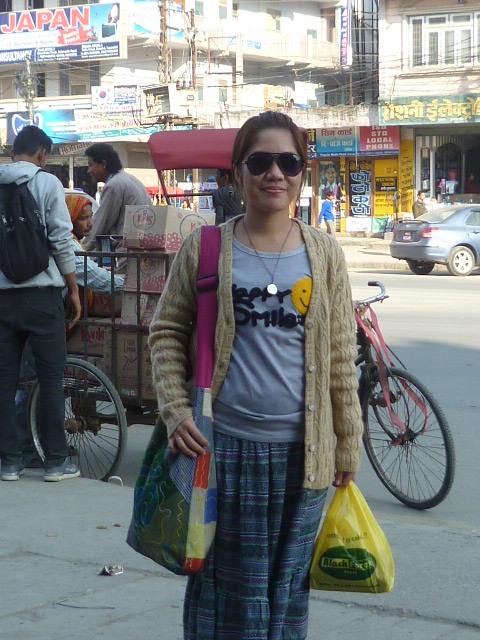
The nature of my work as a volunteer allows me to travel to different
places. This picture was taken near the borders of India.
While I was running the earth was still shaking frantically and I felt a very strong force knocking me to the ground. When I tried to get up I couldn’t walk.. Thankfully my neighbor saw me fall and helped me get out of the building.
At that moment I became crippled and unable to support myself. After the strong and interminable tremors subsided a Nepali friend came to look for me. Seeing my condition she brought me to her home. For several days I was dependent on her family while I was waiting to be rescued. I was very thankful for their generosity.
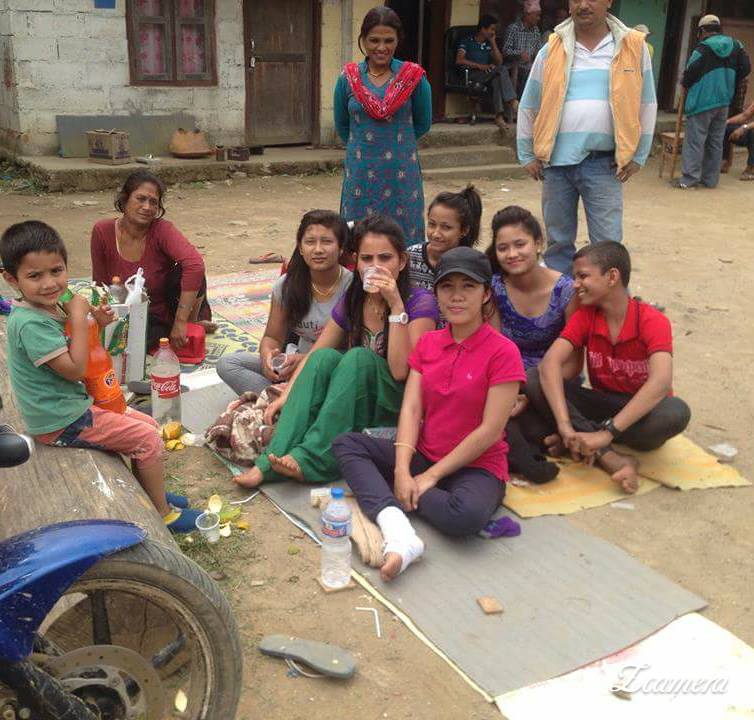
This is the family that gave me refuge.
However, supporting myself in the midst of calamity was physically tiring and exhausting. But the mental and emotional pain was greater than any physical discomfort I was feeling. I saw my neighbors and other victims of the earthquake needing much help and support. But I was aggrieved by the fact that I couldn’t help others because I was also suffering. I asked myself, ‘What’s the use of flying half way around the world and not being able to do anything?’ It was my job to serve, to take care of and support those who were vulnerable and to help them especially in times like this and yet there I was unable to walk. I was an encumbrance.
I had gone to Nepal in August 2014 as a developmental worker in the area of education. I was assigned to Dhading District, one of the country’s 75 districts, to work as teacher trainer in twelve schools for our Sisters for Sisters Project.
I trained and mentored Nepali teachers from grades four to six in child-centered teaching methodologies. I also helped head teachers, school management committees and parent-teacher associations to develop inclusive and gender-sensitive programs.
Before the 7.9 magnitude earthquake I had been living in beautiful Nepal for eight months. I had learnt the culture, was able to speak the Nepali language and I had already made significant bonds of friendship.
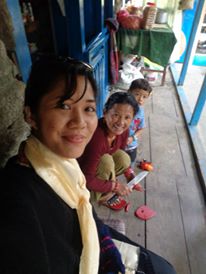
Nepali hospitality is priceless. Taking a picture with my host family while
doing field work.
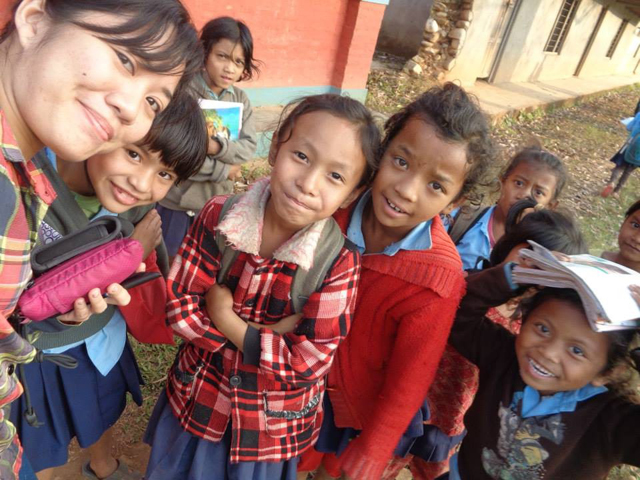
The school kids at one of our schools. There we call them little sisters or
in Nepali we say 'bahini'. Other than tutoring, it is essential that we give
them advices and support like sisters.
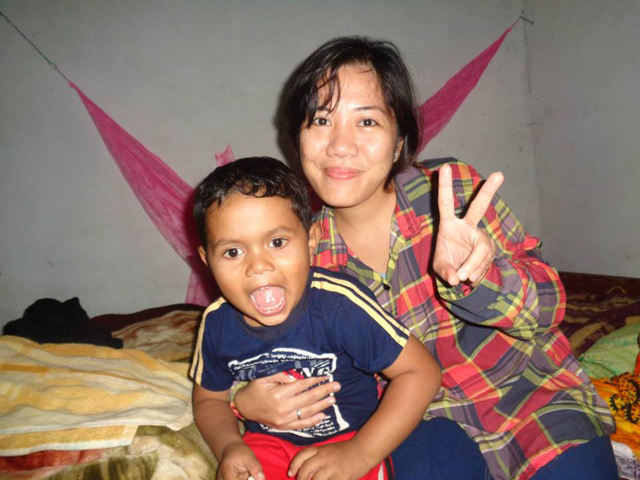
Anukrit the son of one of the teachers I'm working with. In Nepal
relationships are very intimate. My colleagues at work treat me as a family
member.
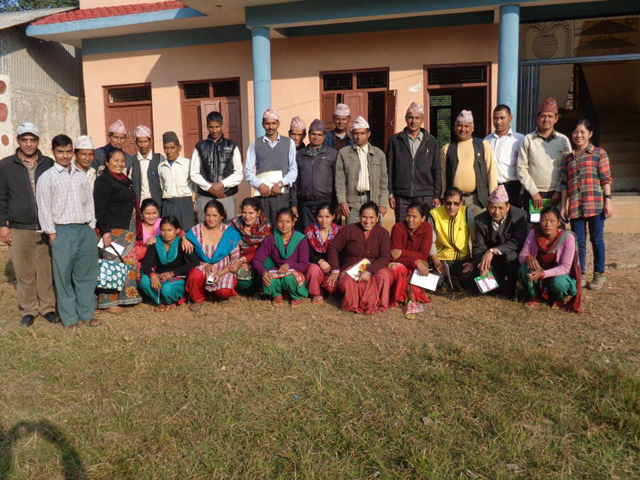
Teachers, school management committee and members of PTA during our school
improvement plan workshop.
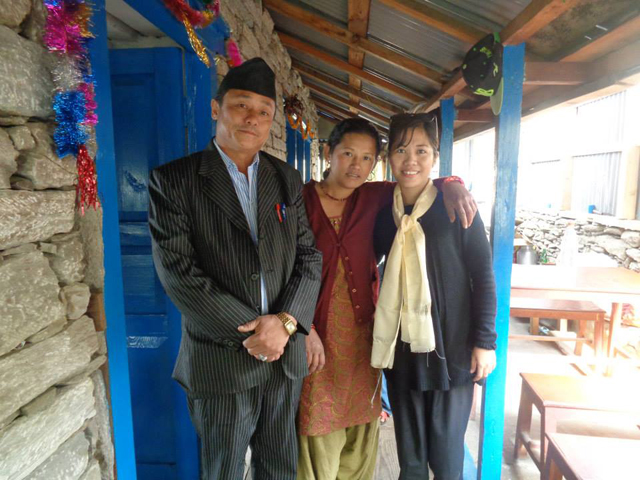
A photo of Sir Jay Gurung together with his family in his house in Baseri.
Usually I have to walk 3-5 hours on steep terrains to reach our schools. I stay
in the house of the teachers for a couple of days when I'm working in schools.
As the days passed, the condition of my foot became worse and so did the emotional discomfort within me. I was extremely worried because I didn’t have means of communication and I couldn’t contact my organization to let them know that I was injured. Also, I couldn’t contact my family and friends back home who must have been worried about me.
I stayed a couple of days and nights at the evacuation area surviving with just the basic necessities.
I grew anxious and I couldn’t accept the situation I was in. With my broken foot I was so helpless. I didn’t want to concede to my disability because by doing so I would appear weak and undependable. And also, I didn’t want to burden my friend and her family so I maintained a strong mask. I had endured many challenges, gone through a number of frustrations and turning points in life. I am a very self-reliant and independent person. I am a volunteer, and I am resilient. It is not like me to appear weak.
But deep inside I was crying for help. My injury had brought me to a situation of extreme vulnerability. Vulnerability is a precarious position, exposed, unprotected and defenseless.
For a short while, I lived under the illusion that I was capable enough of taking care of myself. This prevented me from thinking that I was an encumbrance to the people around me. But eventually I became too exhausted and desolate. Our true nature will enable us to see that it is essential to have support in times like this and that we need to surrender ourselves without reservation.
Being vulnerable gave me a humbling learning experience and a deeper contemplation of what vulnerability actually is. Many experience being vulnerable in sickness, in loneliness, in being away from their family, in losing a loved one, in poverty and so on. In attempts to appear capable and strong, some completely block off all the potential support, care and love extended by the people who surround them. In fact, the vain attempt to ignore this feeling is presumptuous and shows a lack of understanding of our real human nature. Most especially, running away from this feeling deters us from being sympathetic to the grief of others.
Vulnerability is God’s way of revealing his love to us through the love and affection of others. God has assured us that in the face of trials of various kinds, the testing of our faith produces steadfastness. In turn, we should allow steadfastness have its full effect that we may be perfect and complete, lacking in nothing. Those who lack the wisdom to accept vulnerability should ask God for it. He who gives generously to all without reproach will give it.
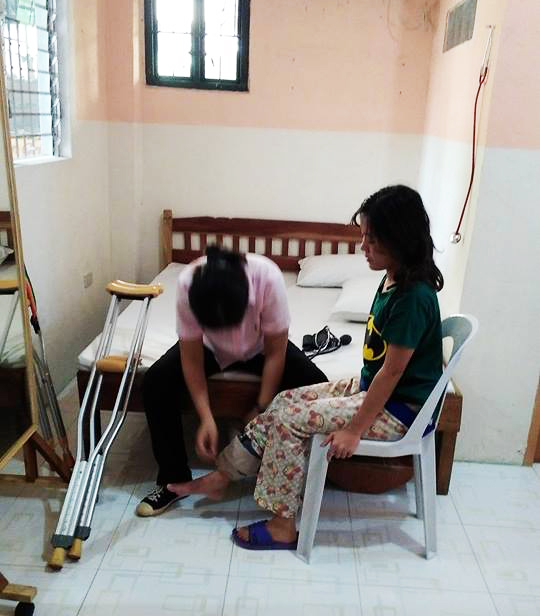
The author undergoing her therapy in the Philippines. She's on her way to
full recovery and will be back in Nepal in August.
Having all those people who cared for me at the time I needed care and support, and who understood me despite everything is very precious to me. I considered this a divine gift.
And most of all, what I have learned from this experience is that being vulnerable didn’t make me feel worthless or less powerful in any way. In fact it deepened my faith and trust in God. It made me feel more loved and I appreciated all the affection I received. In that moment of my perceived weakness I found strength in my relationships with myself, with my family, with my friends and even with strangers.